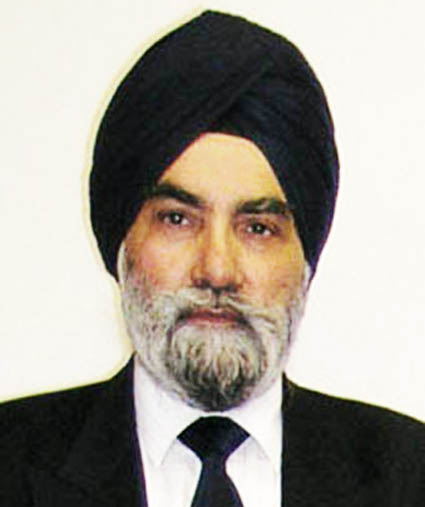Expanding Global Sikh Nation

An invitation to write a guest editorial about the enlarged Sikh diaspora for a Sikh journal, prompted some thoughts about the growth of the global Sikh nation in the last few decades. One proof of increasing Sikh influence abroad is the regular coverage given to diaspora Sikh issues by the Indian media. Generally, Sikh successes are readily claimed as Indian while activism relating to Sikh assertion of own identity and rights is reported negatively as separatism!
Over the decades, full identity Sikhs have achieved the highest positions in diaspora countries. Of these, Ajaypal Singh Banga, President of the World Bank Group, is the latest example.
When I came to the industrial town of Slough in 1960, there were 5 turban wearing Sikhs in the town. There were less than 200 clean shaven Sikhs, mostly from Panjab, working in factories in and around the town. Turban wearing Sikhs were turned away at factory gates.
Today, there are nearly 20,000 Sikhs representing over 11% of Slough population. Britain&rsquos first turban wearing Sikh MP, Tanmanjeet Singh Dhesi was elected from this constituency in the 2017 general election.
In 1960, after about a month, I was relieved to get my first job as a lab assistant in an optical products factory at Slough. Twenty-six years later in 1986, it was a humbling experience to start UK departmental representation in Europe. During my working life, Guru-given Sikh identity has always been the spur to do better.
That is the Sikh diaspora story repeated at community and individual levels in the main countries with sizeable Sikh populations outside India. Sikh populations and gurdwaras are increasing in many countries. Last week, some Gursikhs were raising funds at our local Sri Guru Singh Sabha Gurdwara in Southall, UK, for Gurdwara Guru Nanak Parkash at a small town, Klagenfurt in Austria.
Large scale displacement of Sikh populations in 1947 and the events following 1984 increased Sikh migration to countries far and wide. There are about 26&ndash30 million Sikhs worldwide, of whom probably over 4 million live in the expanding Diaspora. There is hardly a country in the world where there are no Sikhs. One source, Sikhism by Country 2024 - World Population Review, gives Sikh populations in the main diaspora countries as: Canada 771,790, UK 524,140, US 500,000, Australia 210,400, Italy 150,000, Malaysia 100,000, UAE 52,000, Philippines 50,000 and New Zealand 40,908. UK Sikh experience is that most of these figures understate Sikh populations by hundreds of thousands due to the unreliability of statistical classification and monitoring systems under categories like ethnicity, ancestry, religion etc. The politics of opt-in to tick Sikh against some default option like Indian, or Other, works against Sikh interests by undercounting Sikh populations. Yet, numbers do count to secure a level playing field for a distinct theo-political community like the Sikhs.
Sikhs are not a geographical nation but, traditionally, they have always insisted on being treated as a nation, the Khalsa Panth. In recognition, the House of Lords allowed protection to Sikhs under the Race Relations law as afforded to other ethnic groups and nationalities.
Today, there is Sikh political engagement in diaspora countries and at international forums like the United Nations. There is global recognition of Sikh identity, ideals and institutions.
It is for next generations to continue with such positive activism in different fields to promote Sikh recognition while playing their role as hard-working citizens.
Gurmukh Singh OBE
Principal Civil Servant retd (UK)